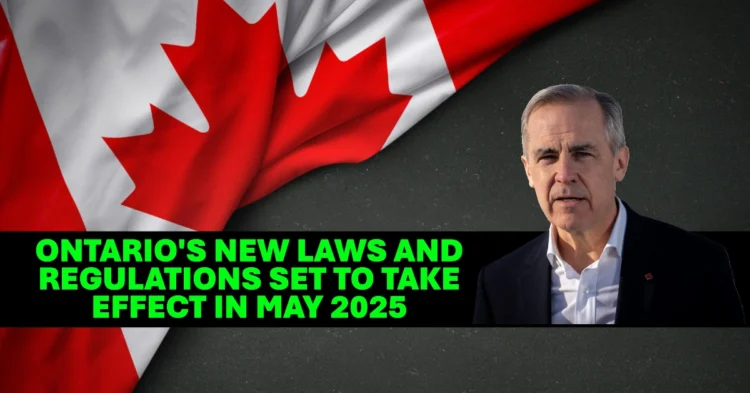Starting in May 2025, Ontario is set to roll out a series of impactful changes that will affect everything from how residents access dental care to how municipalities operate. These updates mark significant moves by both the federal and provincial governments, aimed at increasing public services and accelerating development goals, especially in housing and infrastructure.
Table of Contents
Expanded Access to Dental Care for Millions of Canadians
A New Phase in the Canadian Dental Care Plan
The federal government is expanding the Canadian Dental Care Plan (CDCP) to include millions of additional Canadians, beginning in May 2025. This move will provide much-needed access to dental services for low- and middle-income individuals who currently lack coverage.
Application Rollout Dates by Age Group:
- May 1: Residents aged 55 to 64
- May 15: Residents aged 18 to 34
- May 29: Residents aged 35 to 54
Who Qualifies?
To be eligible, applicants must:
- Not have access to any dental insurance
- Have filed their 2024 Canadian tax return
- Have a family net income below $90,000
- Be a Canadian resident for tax purposes
When Does Coverage Begin?
Coverage is expected to start as early as June 1, 2025. Eligible individuals can apply:
- Online
- By phone
- In person at a Service Canada Centre
This initiative is part of a broader push to improve healthcare equity and reduce the financial burden of dental care on families across Canada.
Ontario Expands ‘Strong Mayor’ Powers Across 169 Municipalities
What Are ‘Strong Mayor’ Powers?
Originally introduced in Toronto in 2022, strong mayor powers grant enhanced executive authority to heads of municipal councils. These include:
- Appointing the chief administrative officer
- Hiring key department heads
- Proposing budgets and certain bylaws
- Vetoing specific bylaws
New Rollout Begins May 1, 2025
As of May 1, 2025, 169 new municipalities across Ontario will be added to the list of communities where the heads of council have access to strong mayor powers. This expansion aims to:
- Accelerate housing development
- Improve infrastructure planning
- Align municipal decisions more closely with provincial priorities
Why the Expansion?
According to the province, the goal is to reduce bureaucratic delays and give municipalities more tools to address urgent local issues, especially around housing supply and public transit.
“This significant expansion reflects Ontario’s commitment to streamline local governance and ensure municipalities have the tools they need to reduce obstacles to new housing and infrastructure development,” the provincial government stated.
Canada Launches Nationwide Class-Action Lawsuit Against Popular Weed Killer Brand
Meta Begins $90M Payouts in Facebook Lawsuit Over ‘Like’ Button Privacy Issue
What This Means for Ontario Residents
- For individuals: The expansion of dental care coverage could mean significant savings and improved health access.
- For communities: With stronger mayoral powers, municipal decision-making may become more centralized but potentially more efficient.
- For developers and homebuyers: The housing approval process could speed up in many towns and cities, potentially increasing housing supply and stabilizing markets.
Final Thoughts
Ontario is entering a new chapter in public policy with a dual focus: making healthcare more accessible and empowering local governments to act more decisively. Whether you’re a resident looking to access dental services or a community member curious about how governance changes might affect local development, these updates are worth paying close attention to as May 2025 approaches.

